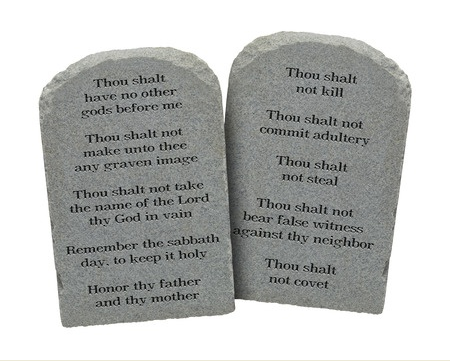Prophetic words and taking God's name in vain
 When most people think of "taking the Lord's name in vain," they usually think this refers to saying God's name in profanity. That's a start, but there's actually another way people are in danger of taking God's name in vain (which basically means to treat his name lightly). They do this by claiming God told them to say something he didn't actually say.
When most people think of "taking the Lord's name in vain," they usually think this refers to saying God's name in profanity. That's a start, but there's actually another way people are in danger of taking God's name in vain (which basically means to treat his name lightly). They do this by claiming God told them to say something he didn't actually say.
In ancient Israel, God severely judged those who spoke in his name "lying words" that he did not command them (Jeremiah 29:23).But in certain quarters of the church today, including New Apostolic Reformation (NAR) churches, many individuals frequently claim God has "given them a special word" for other individuals or even for an entire church. They often preface their words with statements like "The Lord told me to tell you something" or "God showed me such and such about you" or even with a more authoritative sounding pronouncement: "Thus saith the Lord."What's further, many of these same people minimize the seriousness of getting a prophetic word wrong by reciting popular NAR platitudes such as "everyone makes mistakes" and "Eat the meat and spit out the bones." In other words, just ignore erroneous prophetic words. This lenient attitude toward false prophetic words is promoted by many of the NAR movement's most influential leaders, including Mike Bickle, founder of the International House of Prayer in Kansas City, Missouri. In his bestselling book Growing in the Prophetic, he claims that giving erroneous prophetic words is an "inevitable" part of the process of learning how to prophesy.
As Christians launch out and learn to prophesy according to the measure of their faith, they are bound to get their "signals crossed" more than once by "going beyond their measure" and speaking out of their own mind or spirit. This is due to the inevitable immaturity through which we must all learn. (page 55).
The idea held by many NAR leaders is that if individuals giving a prophetic word mean well then they should not be condemned--even if they give a false prophetic word.But God does not give a pass to people who give false prophetic words merely because they mean well and because their words are heartfelt. Consider the words he spoke to Ezekiel about people who were giving false prophetic words that did not come from him, but rather came from their hearts.
“Son of man, prophesy against the prophets of Israel, who are prophesying, and say to those who prophesy from their own hearts: ‘Hear the word of the Lord!’ Thus says the Lord God, Woe to the foolish prophets who follow their own spirit, and have seen nothing! ... They have seen false visions and lying divinations. They say, ‘Declares the Lord,’ when the Lord has not sent them, and yet they expect him to fulfill their word. Have you not seen a false vision and uttered a lying divination, whenever you have said, ‘Declares the Lord,’ although I have not spoken?”Therefore thus says the Lord God: “Because you have uttered falsehood and seen lying visions, therefore behold, I am against you, declares the Lord God. My hand will be against the prophets who see false visions and who give lying divinations." (Ezekiel 13:1-9)
In short, it's a serious thing to claim to speak on behalf of God. If you're going to do so, be sure he's actually spoken--lest you find yourself guilty of breaking the Third Commandment.-------Holly Pivec is the co-author of A New Apostolic Reformation?: A Biblical Response to a Worldwide Movement and God's Super-Apostles: Encountering the Worldwide Prophets and Apostles Movement. She has a master's degree in Christian apologetics from Biola University.
